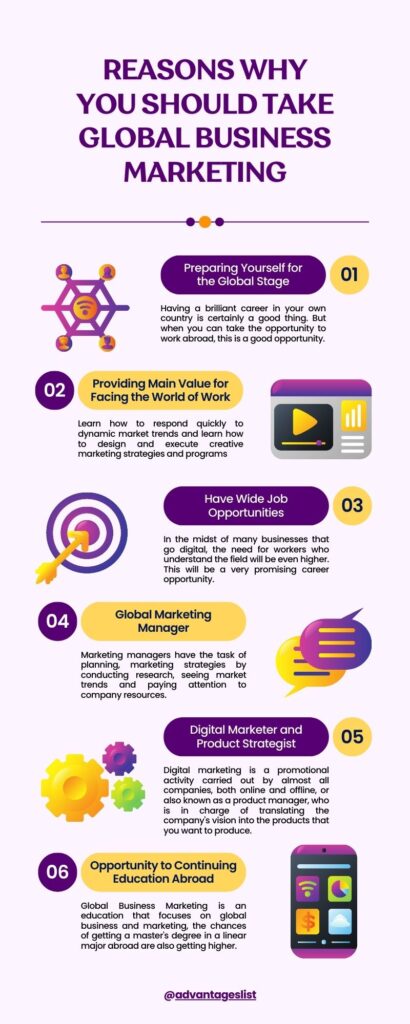As businesses build sustainable growth, the thought of entering international marketplaces frequently occurs. To succeed on a global platform it is important for the firms to build a strong global strategy.
The secret to succeeding on the global stage is to perfect the craft of creating an efficient global plan. The focus of the article would be to discuss what is global strategy and what are the disadvantages of global strategy.
In extent to this, we would explore some examples of how businesses are utilizing global strategy.
What is Global Strategy
Global strategy is a term that is used for global, multinational, and international strategies. Without a Global strategy, companies may fail in international marketplaces if they don’t have it or are not properly using it.
Its main objective is to increase sales globally by using a variety of tactics, including standardization, internationalization, and multinational strategies. It’s crucial to assess the worldwide-market potential for the product lines of the companies in order to develop a successful global strategy.
In order to taste success globally all such tactics like examining rivals, comprehending global client preferences, evaluating manufacturing sites, and taking other key elements into account play a significant role.
In addition, a key component of an outstanding global marketing strategy is having a thorough understanding of the target audience, and their needs.
Businesses may develop an effective global marketing strategy that connects with customers throughout the world and propels success by understanding the demands of the target market, choosing the right strategies, as well as putting them into action.
Organizations may actively pursue international expansion and achieve success on a worldwide scale by understanding and putting these various tactics into practice.
Example of Global Strategy
We will discuss two companies, Nike and Macdonald here as an international strategy example. How these companies operate globally. Let’s look it.
1. Nike
Its main strategy to expand globally by Nike is international sponsorships. For instance, the collaboration with Manchester United Football Club. Although the cost of sponsorships related to a tournament is quite high, such partnerships have increased the brand’s loyalty significantly.
Another successful implementation of a global strategy by Nike is the “Nike co-creation platform”, it engages consumers from around the globe in the design process.
Through this process, Nike delivers customized products to consumers that align with cultural preferences and styles. This approach, granting creative control to consumers, fosters deeper connections and strengthens Nike’s presence across international markets.
2. McDonald’s
Likewise, the success of McDonald’s worldwide is because of their global marketing approach. McDonald’s distinctive approach to catering to a variety of consumer tastes and changing it has been able to constantly increase brand identity.
For instance, “The McArabia flatbread sandwich”, created especially for the Middle Eastern market, serves as a superb example of this tactic.
Because of how personally and culturally relevant this is to customers, McDonald’s can flourish globally while honoring the unique qualities of local markets.
After discussing Global Strategy and how businesses are successfully using it. Let us now look at its disadvantages.
Disadvantages of Global Strategy
Like the advantages of international strategies, such as competitive advantage, economies of scale, Diversification, Access to new markets, Increased revenue, and brand awareness it has many cons. Let’s look at some drawbacks of global strategy.
1. Disadvantage in a case of natural disaster
When a country is hit by a natural disaster and a multi-national is competing with a rival. It would be impossible for the multinationals to be as responsive as the local companies.
As shipping of the products would be disturbed and would be impossible to maintain stock. This would cause a disadvantage for the multinational.
2. Political relations with the international countries
As companies expand and convert into multinationals, it is important for them to exert a political power for their benefit. After all, if they don’t, they will be subject to recurring operating risks, which is hurtful. For example, US and China relations impacted Huawei’s sales drastically.
3. Culture and taste
Entering an international market, firms must discover the customs, beliefs, and traditions of the area. It aids in comprehending how potential clients would view your company. Neglecting such factors may cause denting damage to the business and would cause a demerit for the company.
4. Value of Currency
Working globally may also cause currency exchange problems for businesses. As the nation’s currency value will impact the ability to conduct business with other countries.
Businesses need a strong currency to purchase goods from other nations. The frequent changes in currency rates might cause problems for many businesses.
5. Taxation and Regulations
Expanding businesses in international marketplaces is not a piece of cake. Countries make it difficult for the firms to move into their regions and charge high tariffs and taxation policies which can cause harm to the company offerings. As the product would be at a higher pricing than the local seller.
6. Product Customization
Offering products and services to international marketplaces businesses may find it difficult to customise their product line and offerings.
For instance, launching a product in a foreign country may require changing the labeling and packaging, according to the host country’s language and perceptions. This would be time-consuming and if implementing the strategy is not right, the company would suffer huge losses.
7. Economic Risk
Economic variations, such as currency exchange rate shifts, price increases, downturns, and financial meltdowns, affect worldwide markets. These risks might impact a global strategy’s profitability and viability.

8. Higher Opposition
Businesses that develop into global markets face greater competition. Local and worldwide rivals may already have solid market positions, significant brand awareness, and competitive edge, making it hard for fresh competitors to gain their presence.
9. Complexity of Supply Networks
Operating on a global scale causes managing complicated supply networks that span various nations and geographic areas. This complexity raises the likelihood of disruptions, including delays in transportation, trade obstacles, and vendor concerns.
10. Communication Issues
Effective communication is critical for the successful implementation of a worldwide plan. Language limitations, time zone variances, and cultural idiosyncrasies impede effective communication within a global organization.
11. Inadequate Knowledge of Local Areas
Entering new markets causes a thorough grasp of local consumer needs, behavior, and market conditions. Ineffective marketing methods, product offerings, or choices regarding pricing may arise from a lack of this understanding.
12. Ethical and Social Responsibility Issues
Working in different markets frequently requires dealing with different ethical standards and societal accountability demands. Businesses must negotiate these variances while upholding a consistent approach regarding corporate social responsibility, which can be difficult.
13. Inconsistencies Risk
Local modifications may cause discrepancies in advertising messages, the quality of goods, and consumer satisfaction, which may adversely affect the brand’s general perception and reputation.
FAQs
-
What are multidomestic strategy advantages and disadvantages?
There are several advantages and disadvantages to adopting a multi-domestic strategy:
Advantages of multi-domestic strategy
1. Localized method.
2. Cultural adaptation.
3. Market response.
4. Regulatory Compliance.Disadvantages of multi-domestic strategy
1. Increased Costs.
2. Issue in developing economies of scale.
3. Knowledge transfer issues.
4. Communication and coordination issues.
5. Currency Issues. -
What are Global strategy company examples?
A few examples of Global strategy company are:
1. Coca Cola
2. McDonald’s
3. Procter & Gamble
4. Unilever
5. Nike
Conclusion
After the detailed discussion above it is concluded that while a global strategy provides several benefits and chances for firms to broaden their reach and enter foreign markets, it is critical to recognize and handle the potential drawbacks.
Disasters caused by nature, relationships with politicians, variances in culture, fluctuations in currencies, taxation and rules and regulations, customization of goods, financial dangers, increased rivalry, supply network difficulty, problems with communication, lack of understanding of local markets, and moral and environmental decisions are among the disadvantages of a global approach to business.
Despite the risks, a well-executed worldwide strategy can cause long-term growth, higher market share, improved company image, and exposure to new client segments.
Corporations can position themselves for a prosperous future in the international market by exploiting the benefits of global expansion while effectively handling the related challenges.
Businesses must approach global strategy with careful preparation, flexibility, adaptability, and a thorough understanding of the target markets.
Corporations may optimize their global operations, develop strong alliances, and fulfill the different needs of clients worldwide by regularly analyzing and adapting their plans.
Therefore, a global strategy causes thorough analysis of many elements and meticulous execution in order to overcome obstacles and capitalize on the huge possibilities available in the global economy.
Businesses may traverse the challenges of foreign marketplaces and achieve worldwide success and expansion with an appropriate strategy. We hope you enjoy our article’s pros and cons of global strategy and international strategy examples. If we need help let us know.
Read More Do You Really Have a Global Strategy?

